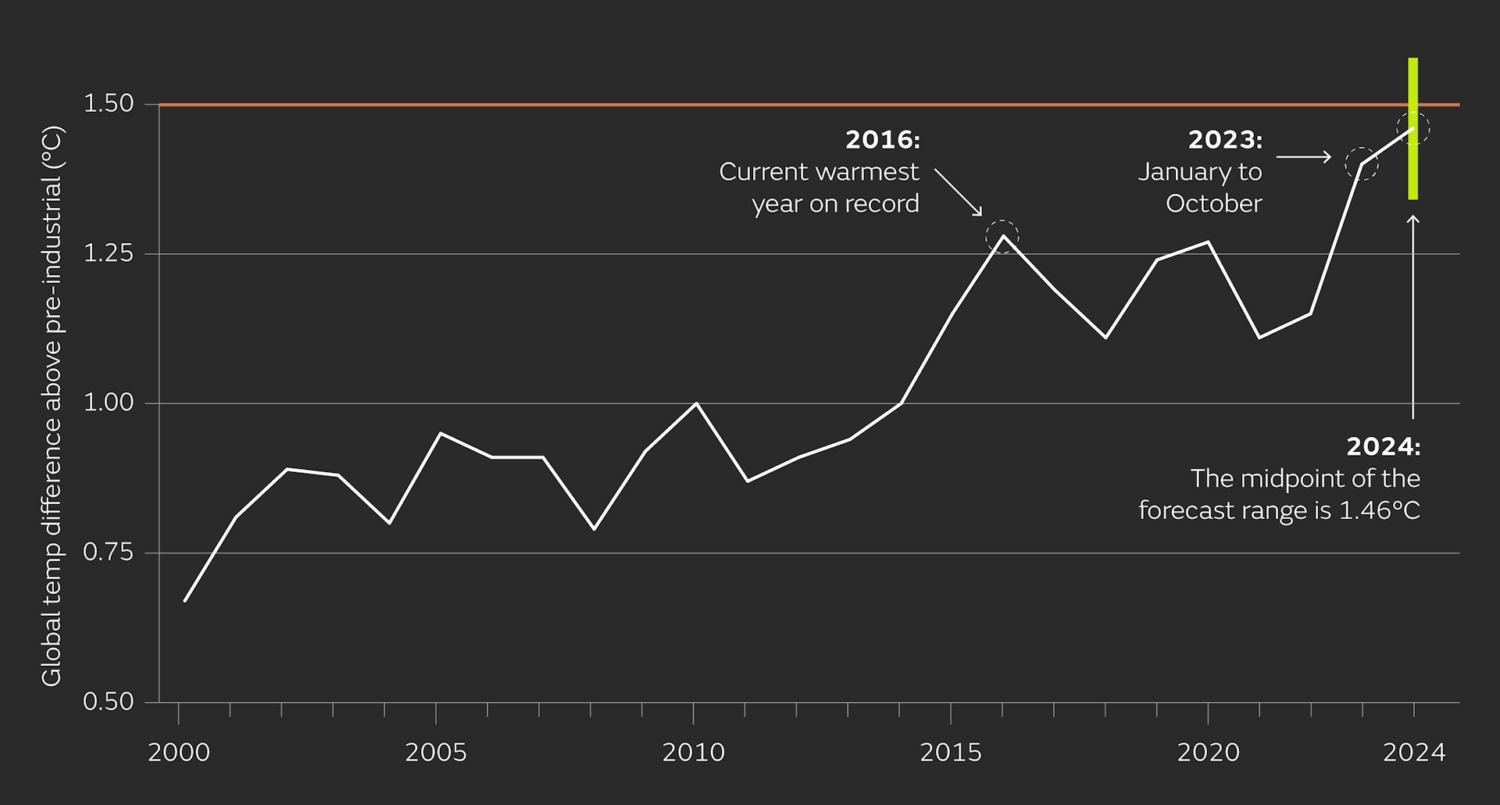2024 anticipated to be hottest year in history
 Photo: Hottest year in history anticipated for 2024 (GettyImages)
Photo: Hottest year in history anticipated for 2024 (GettyImages)
Meteorologists predict that 2024 will surpass 2023 as the hottest year on record, driven by climate change and an emerging El Niño event. This anticipated increase in global temperatures highlights the ongoing challenges in meeting climate goals set by international agreements like the Paris Agreement, according to Yale Environment 360.
The World Meteorological Organization reported that the first ten months of 2023 were already 1.40 degrees Celsius warmer than the preindustrial baseline, partly due to human-caused warming and the effects of El Niño.
The U.K. Met Office projects an even higher temperature increase for 2024, potentially reaching 1.46 to 1.58 degrees Celsius above preindustrial levels.
 Climate change (Photo: Yale Environment 360)
Climate change (Photo: Yale Environment 360)
Despite this trend, climate scientist Adam Scaife emphasized that a temporary exceedance of the 1.5 degrees Celsius target set by the Paris Agreement does not constitute a breach but marks a significant moment in climate history.
Climate crisis
2023 climate change reached alarming levels, with scientists confirming it as the warmest year in recorded history before December began. This was due to record-breaking heat and elevated greenhouse gas levels.
The European Union's Copernicus Climate Change Service confirmed that 2023 had six record-breaking months and was the warmest year ever recorded, with temperatures significantly surpassing preindustrial levels.
The primary cause of rising temperatures is human activity, particularly the burning of fossil fuels. This has led to disruptions in weather patterns and an increased risk of extreme weather events, such as wildfires, heatwaves, and flooding.
Despite global attempts to fight climate change, including a commitment at COP28 to reduce reliance on fossil fuels, many specialists believe stronger measures are necessary. They suggest completely stopping the use of fossil fuels and halting the construction of new fossil fuel infrastructure to avoid extreme climate warming.
Climate emergency
The background of this situation lies in the long-term effects of climate change, exacerbated by human activities that release greenhouse gases into the atmosphere.
Compared to 2016, the previous hottest year, which also coincided with an El Niño event, underscores the role of natural climate phenomena in influencing global temperatures.
The ongoing rise in temperatures signals the urgency of addressing climate change and meeting international commitments to limit global warming as the world edges closer to critical temperature thresholds.
Also, we recently wrote that cities are at risk of vanishing by 2030 because of rising sea levels.

